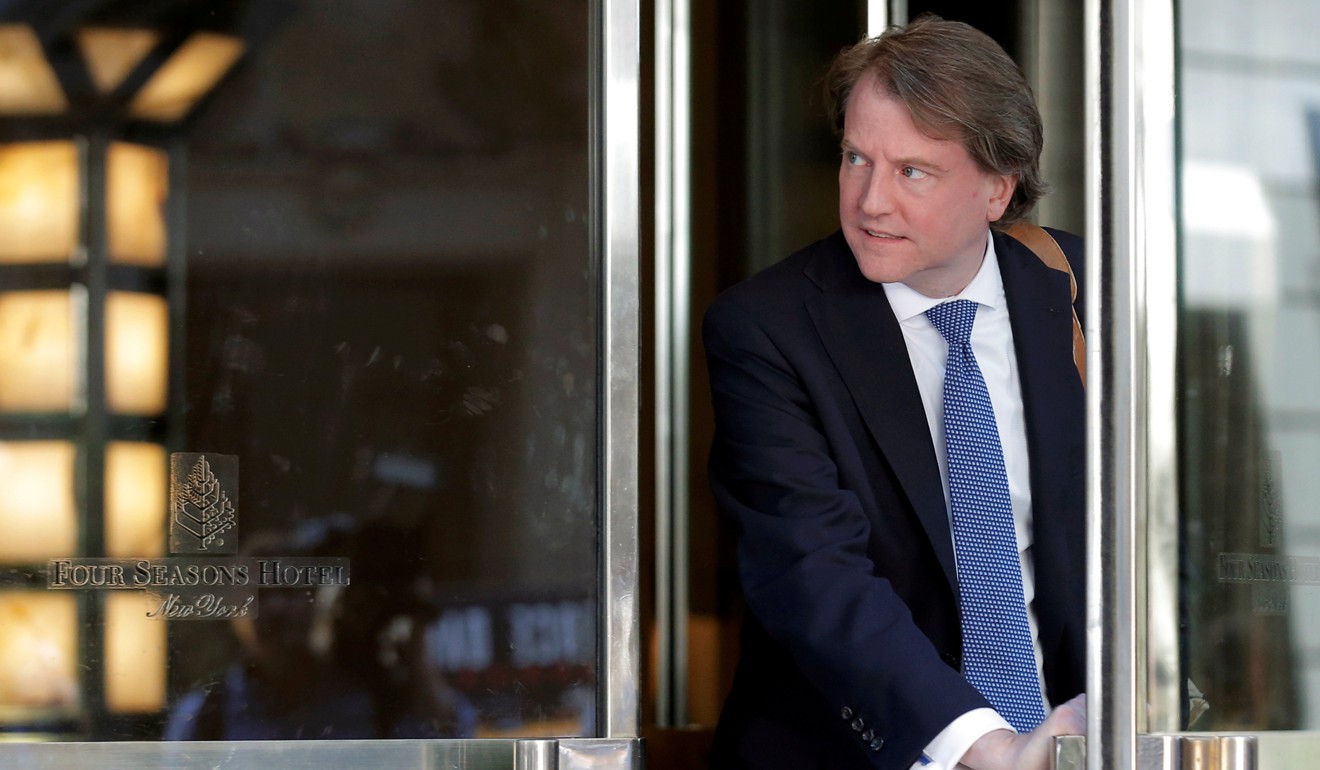
Trump ordered Mueller’s firing but backed down when White House lawyer threatened to quit, New York Times reports
White House lawyer Don McGahn vowed to quit rather than implement the firing of special counsel, report claims
US President Donald Trump ordered the firing of Russia investigation special prosecutor Robert Mueller last year but the White House counsel’s threatened resignation pushed him to reverse course, US media reported on Thursday.
Mueller is leading the probe into allegations of collusion between the US president’s campaign team and Russia in the 2016 election, which Trump has repeatedly criticised and views as an attack on the legitimacy of his presidency.
Trump gave the order in June 2017, according to The New York Times, but White House counsel Don McGahn opposed the decision, telling senior officials it would have a “catastrophic effect” on Trump’s presidency.
After McGahn threatened to quit, Trump backed down, the Times reported, citing four anonymous sources.
The Washington Post, also citing anonymous sources, confirmed that Trump sought to fire Mueller but reconsidered after the White House counsel’s threat.
White House counsel Ty Cobb declined to comment on the matter, the Times said.
Trump told journalists in August that he had not considered firing Mueller, some two months after he reportedly had moved to do just that.
“I haven’t given it any thought. I mean, I’ve been reading about it from you people, you say, ‘Oh, I’m gonna dismiss him.’ No, I’m not dismissing anybody,” Trump said.

According to the Times, Trump had accused Mueller of three conflicts of interest that he argued disqualified him from running the Russia collusion investigation.
The alleged conflicts were: Mueller had terminated his membership at a Trump golf course over a dispute about fees, had worked for the law firm that previously represented the president’s son-in-law Jared Kushner, and had been interviewed to return as director of the FBI before he was appointed special counsel.
Democratic Senator Mark Warner, the vice chair of the Senate Select Committee on Intelligence, said Thursday that firing Mueller was a “red line.”
“I’ve said it before, and I am saying it again: firing the special counsel is a red line that the president cannot cross,” Warner said in a statement. “Any attempt to remove the special counsel, pardon key witnesses, or otherwise interfere in the investigation, would be a gross abuse of power.”
The day before, Trump for the first time directly said that he would cooperate with Mueller, whose investigation he had previously dismissed as a “witch hunt.”
“I would love to do it,” Trump told reporters in the White House when asked about testifying.
“I would do it under oath, absolutely.”
Any interview of a US president in an investigation is fraught with issues of executive privilege – how much and in what context the US leader can be forced to disclose information.
In Trump’s case, it also raises deep concerns that his shoot-from-the-hip outspokenness could jeopardise his own legal position.

.png?itok=arIb17P0)